Kaleidescape is known for delivering a premium home theater experience with reference-quality movie players, servers, a comprehensive movie download store and mobile app and an elegant and intuitive user interface. Its service offers audio and video quality comparable to and sometimes even exceeding the best physical media while providing the convenience of fast downloads of a huge selection of titles for near instant gratification. However, the high cost of entry has been a significant barrier for many potential users.
We’d guess that Kaleidescape must be running out of millionaires and billionaires to sell to. Lately the company has been lowering this cost of entry in order to build market share and bring the Kaleidescape ecosystem into more households. That cost dropped last year when the STRATO V movie player was introduced. At $3,995, the Strato V provides exceptional 4K/UHD movie playback quality with support for Dolby Vision and HDR10 HDR and lossless immersive surround sound. It also offers something its predecessor didn’t have: built-in storage.
The previous Strato C player required that you also purchase at least one of the company’s Terra servers for movie storage, but the Strato V’s built-in Terrabyte solid state hard drive has enough space for 10 high resolution 4K movies. Of course, the Strato V, like other Kaleidescape players, supports outboard storage servers for those with larger movie collections or those who wish to built that collection over time.
The Strato V offers the full audio and video quality of which the Kaleidescape platform is capable, with no requirement for server investment, but the opportunity to grow one’s movie collection as desired. Read my review for details on my experience with the product (spoiler alert – I loved it). But Kaleidescape just released a new player that seems like a step backwards.
Meet The Kaleidescape Strato M
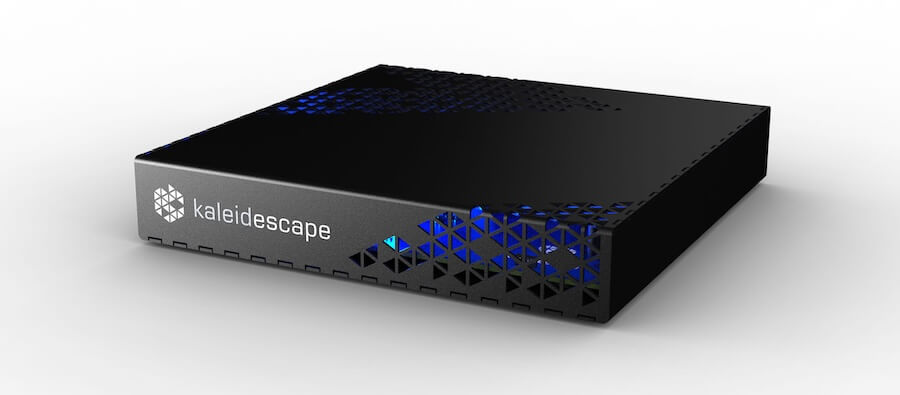
To attract more customers, Kaleidescape has launched the Strato M movie server/player at its most affordable price yet, just $1,995 USD. However, unlike the other movie players that Kaleidescape offers (Strato V and Strato C) that support 4K resolution, the Strato M drops resolution down to “reference 2K” video (aka 1080p resolution) while continuing to support lossless audio formats like Dolby Atmos (Dolby TrueHD) and DTS:X (DTS-HD Master Audio).
In the words of Tayloe Stansbury, chairman & CEO of Kaleidescape: “Strato M opens up the Kaleidescape experience to a broader range of movie enthusiasts…And in larger systems, Strato M is great for secondary rooms while reserving the flagship Strato V for main viewing areas.”
Taking a cue from the Strato V, the Strato M includes about a half a Terrabyte of solid state storage, which is room for about 6 movies. With gigabit Ethernet, movies can be downloaded in roughly ten minutes. Also, like the Strato V, the Strato M can function as both a standalone player and as part of a larger Kaleidescape system.
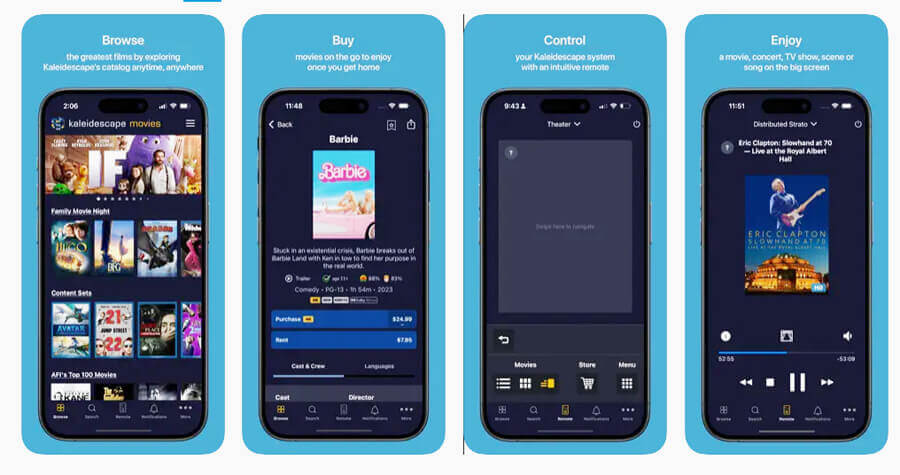
When used standalone, Strato M’s user interface is slimmed down for navigating a small movie library. Its storage system automatically offloads watched movies 48 hours after playback to make room for more movies. Purchased movies can be re-downloaded at any time. Access to a mobile app is provided for ordering movies, but they can also be ordered within the player’s user interface.
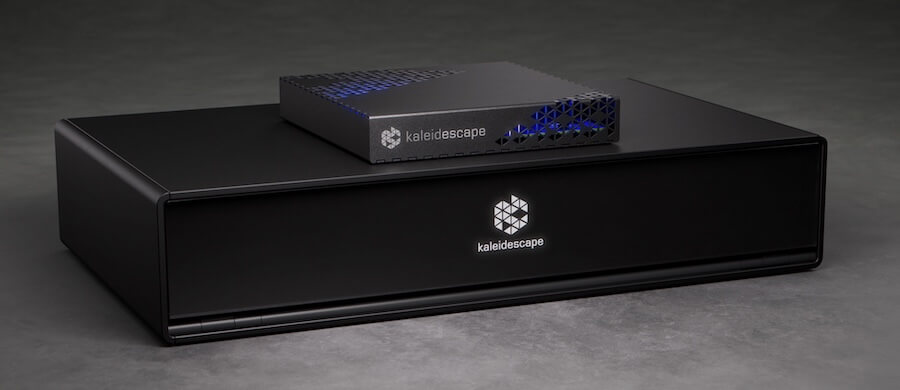
Strato M can also be grouped with Terra Prime movie servers to increase movie storage. Configured with Terra servers in the network, the Strato M adopts the elegant intuitive interface that Kaleidescape is known for. When you select a movie, the interface automatically groups similar titles on screen, whether they be the same genre, have the same actors or the same director. When viewing a title’s description card, you can also click on the actor name or director name to automatically get a list of that person’s other films or shows. It’s probably the first consumer tech product I don’t have to show guests or family members how to use.
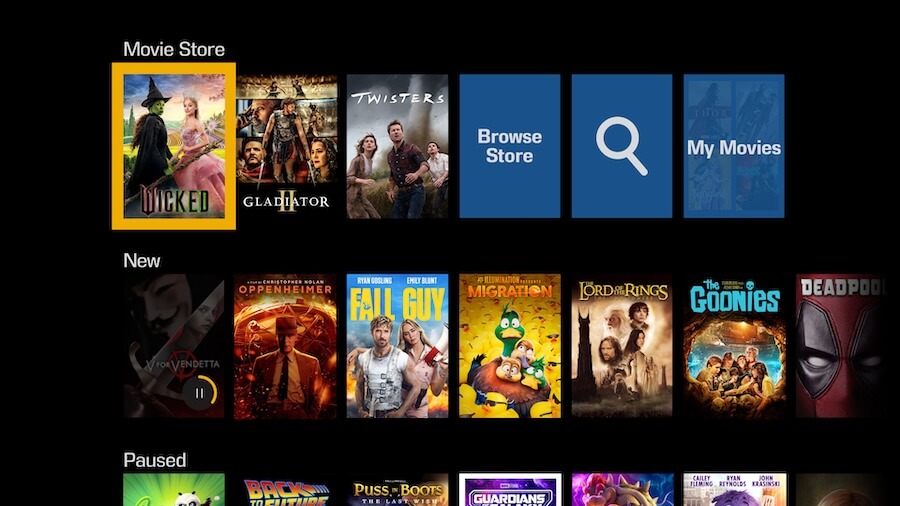
For video, the Strato M supports what Kaleidescape refers to as “reference 2K video” which maxes out at 1920×1080 pixels resolution, a.k.a. “1080p.” But Kaleidescape says they support higher bit rates and bit depths than Blu-ray Disc, including support for HDR formats such as Dolby Vision and HDR10 as well as BT.2020 color space support and 4:2:2 chroma. So movies played back on the Strato M are definitely going to be “better than Blu-ray” but not better than UHD Blu-ray.
The company says that Strato M also supports fully lossless multi-channel and spatial object-based audio, including the lossless forms of Dolby Atmos and DTS:X. This sets it apart from any streaming service as they all use lossy forms of audio streaming.
Kaleidescape Strato M has access to the full Kaleidescape movie store, which currently includes thousands of titles for purchase or rent, including movies, TV series, and concerts. Kaleidescape movies are downloaded, not streamed, so there is never buffering or loss in quality which you can get on any streaming service. Also, 4K movies that you download to the Strato M or to a Terra server can be played back in 4K resolution on any Strato C or Strato V player. On the Strato M, they will be scaled to 1080p resolution at playback time, but will retain any HDR encoding such as Dolby Vision as well as 4:2:2 chroma encoding.
Comparison

| STRATO M | STRATO C | STRATO V | |
| Launch Date | April 2025 | Dec 2016 | July 2024 |
| Product Type | Reference 2K Movie Player | 4K Movie Player | Flagship 4K Movie Player |
| Price | $1,995 | $2,995 | $3,995 |
| Internal Storage | 480GB | None | 960GB (SSD) |
| Group Storage | Compatible with content stored on a Terra or Strato model (with internal storage) when connected and grouped via a local network | Compatible with content stored on a Terra or Strato model (with internal storage) when connected via a local network | Compatible with content stored on a Terra or Strato model (with internal storage) when connected and grouped via a local network |
| Media Format Compatibility | Kaleidescape movie store downloads 4K SDR 4K Dolby Vision 4K HDR10 HD SD | Kaleidescape movie store downloads 4K SDR 4K HDR10 DVD, DVD-R, DVD-RW, DVD+R, DVD+RW (from Kaleidescape Disc Server) | Kaleidescape movie store downloads 4K Dolby Vision 4K HDR10 4K SDR. HD SD |
| Supported Video Resolution (Content) | 2160p60/50/30/25/24, 1080p60/50/30/25/24, 1080i60/50, 720p60/50, 576i, 576p, 480i, 480p Content scaled to 1080p; UI in 1080p | 2160p60/50/30/25/24, 1080p60/50/24, 1080i60/50, 720p60/50, 576i, 576p, 480i, 480p Content Scaled to 2160p; UI in 2160p | 2160p60/50/30/25/24, 1080p60/50/24, 1080i60/50, 720p60/50, 576i, 576p, 480i, 480p; Content Scaled to 2160p; UI in 2160p |
| Video Output (HDMI version) | HDMI 2.1 (with HDCP 2.3 Copy-Protection | HDMI 2.0a (with HDCP 2.2 Copy-Protection | HDMI 2.1 (with HDCP 2.3 Copy-Protection |
| Max Output Video Resolution | 2K (1920×1080) with HDR10 or Dolby Vision | 4K (3840×2160) with HDR10 | 4K (3840×2160) with HDR10 or Dolby Vision |
| HDR Support | Dolby Vision (standard and low latency) and HDR10 (SMPTE ST 2084, 2086) | HDR10 (SMPTE ST 2084, 2086) | Dolby Vision (standard and low latency) and HDR10 (SMPTE ST 2084, 2086) |
| Audio Output | HDMI 2.1 (combined with video) | HDMI 2.0a (combined with video on the HDMI VIDEO port) HDMI 1.4 (audio-only HDMI port) Digital Coaxial/Optical | HDMI 2.1 (combined with video) Digital Audio (coaxial RCA and TOS link connectors) |
| Audio Format/Surround Sound Support via HDMI | Dolby Atmos Dolby TrueHD Dolby Digital Plus Dolby Digital Dolby MAT PCM DTS:X DTS-HD Master Audio DTS-HD High Resolution Audio DTS Digital Surround PCM (up to 7.1ch, 96kHz/24-bit) | Dolby Atmos Dolby TrueHD Dolby Digital DTS:X DTS-HD Master Audio DTS Digital Surround PCM MPEG audio | Dolby Atmos Dolby TrueHD Dolby Digital Plus Dolby Digital Dolby MAT PCM DTS:X DTS-HD Master Audio DTS-HD High-Resolution Audio DTS Digital Surround PCM (up to 7.1ch, 96kHz/24-bit) |
| Audio Format Support via Digital Coaxial/Digital Optical | Not Available | Dolby Digital DTS Digital Surround PCM (2ch, up to 96kHz/24-bit) | Dolby Digital DTS Digital Surround PCM (2ch, up to 96kHz/24-bit) |
| Control Support | Kaleidescape remote included Front-panel IR receiver window IR input (1/8″ mini plug) Kaleidescape control protocol over Ethernet (supported by Josh.ai, Crestron, AMX, Control4, Savant, the Kaleidescape apps, and other apps & control systems) Lutron RA3 and HomeWorks control over Ethernet | Kaleidescape remote included Front-panel IR receiver window IR input (1/8in mini plug) Ethernet control from Crestron, AMX, Control4, Savant, the Kaleidescape App for iPad, and other apps & control systems | Kaleidescape remote included Front-panel IR receiver window IR input (1/8″ mini plug) Kaleidescape control protocol over Ethernet (supported by Josh.ai, Crestron, AMX, Control4, Savant, the Kaleidescape apps, and other apps & control systems) Lutron RA3 and HomeWorks control over Ethernet |
| Dimensions (WHD) | 6.4 x 1.1 x 6.4 inches | 7.87 × 1.52 × 10.0 inches | 7.87 × 1.52 × 10.0 inches |
| Weight | 1.6 lbs | 4.2 lbs | 4.2 lbs |

So why am I less excited about the Strato M than I was (and still am) about the Strato V? It’s that pesky resolution thing. One reason (some) people feel good about buying new gear is the impressive specs – “this TV’s got 2500 nits, 165 Hz refresh rate and 4K resolution. It must be great!” By limiting the resolution from “4K” to “2K” the product sounds half as good. To be technical about it, the Strato M’s output resolution is technically only a QUARTER (1/4) of the resolution of the Strato V and Strato C. But does that really matter?
Having reviewed AV gear including TVs and projectors for some time, I know that having HDR (like Dolby Vision) in the content and player is actually much more important than resolution, particularly on “normal” sized displays (65 inches and under). But when boys buy their toys, they like to have bragging rights, and this whole “2K” resolution thing is going to be off-putting to some.
To be fair, this criticism is based on speculation and specifications – we have not seen movies on a Strato M player yet. And we know 1080p resolution can look quite good – particularly with HDR – and is indistinguishable from 4K at certain seating distances. So for many people, the Strato M may be just what they need, while saving them quite a few bucks in the process.
Kaleidescape has a page describing the picture quality advantages of their “reference 2K” content compared to Blu-ray and streaming, as well as a screen size vs. seating distance chart which illustrates when 4K is actually discernible compared to 2K. You can check that out here.
A Huge Untapped Market
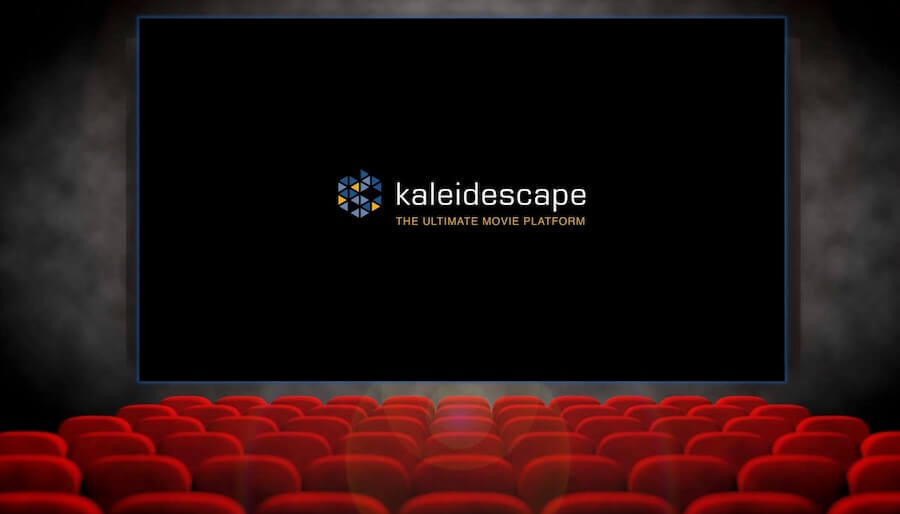
It is entirely possible that existing Kaleidescape owners will buy a few Strato Ms to put in their guest bedrooms, bathrooms or walk-in closets… or in the small guest cabins in their yachts. It’s also possible that a new audience of consumers will be attracted to the Kaleidescape platform by the lower price point of the Strato M. But there is an entirely different market of buyers that may be absolutely over the moon about a Kaleidescape player for under $2K: commercial movie theaters.
While we audio/video hobbyists chase the latest specs, a large percentage of commercial movie theaters, including many IMAX theaters, still project films in 2K resolution. The theatrical “DCI 2K” spec is a little different from 1080p (it’s 2048×1080 pixels compared to HD’s 1920×1080 pixels) but the horizontal scaling isn’t hard. Professional projectors can handle that. And most existing theaters support Dolby Atmos, PCM or DTS sound, so there’s no compatibility issue there. And with each player itself able to store up to 6 titles, no physical media nor massive servers are required either. The theater owner would just need to order up their titles for the week, pop a Strato M in each theater, and when the theatrical run is over, download the next batch of movies.
Kaleidescape is already partnering with several cinema chains in a pilot program for commercial film and concert distribution, including Alamo Drafthouse, B&B Theatres, Brenden Theatres, Cinema West, Classic Cinemas, Epic Theatres, Megaplex Theatres, and Star Cinema Grill. If this program goes well, Kaleidescape may be able to expand to more widespread distribution of first run content in commercial cinemas and that would crack open a huge new market opportunity for the company both on the hardware and the content distribution side.
The company has already built a strong and trusted relationship with most major (and many minor) studios for consumer video distribution and has built up the platform and mechanisms needed for secure high speed digital distribution. Expanding that relationship to commercial distribution is the logical next step. And for a theater owner, the idea of being able to deploy a simple straightforward set of robust and secure digital movie players into 10 theaters for half of what it would have cost to do so last week is probably going to be very appealing, particularly when theater budgets are tight due to lower audience numbers.

The Bottom Line
While we appreciate the effort of Kaleidescape to bring its premium movie and TV viewing platform into more households, we think the 1080p resolution limit on the Strato M might be a turn-off to some potential consumers. Cutting the entry price in half is great, but capping the resolution at 1080p feels like a step backwards. Kaleidescape is touting its use as a second room playback option, as well as a portable option that you can travel with (the player is very compact at roughly 6 inches square and one inch high). So it could be used as a portable movie server/player on the road, and can integrate with a larger Kaleidescape system when used at home.
Kaleidescape seems to be betting that the Strato M’s lower cost of entry will be enough to entice prospective new customers to get a taste of what the company has to offer. But with nearly every new TV and even most decent projectors now supporting 4K resolution, we wonder if potential buyers will be turned off by a movie player that can’t take full advantage of the capabilities of their display.
However, we believe the commercial opportunities of the Strato M, and of the Kaleidescape platform in general, may be huge and could be just the shot in the arm that the struggling theater industry needs.
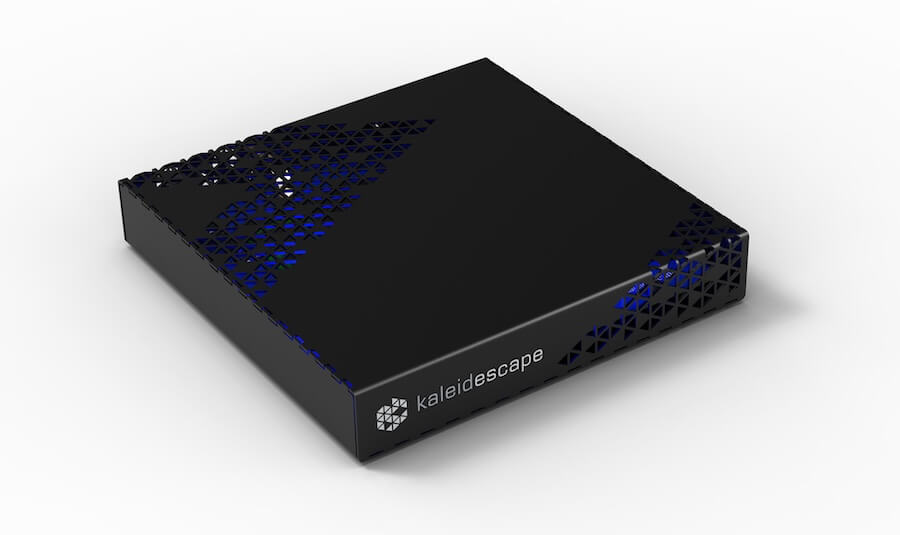
Price & Availability
- Kaleidescape Strato M is available now for $1,995 at Best Buy | Audio Advice
- Kaleidescape Strato C is available now for $2,995 at Best Buy | Audio Advice
- Kaleidescape Strato V is available now for $3,995 at Best Buy | Audio Advice
For more information: kaleidescape.com
Related Reading
- Kaleidescape Strato V Media Player Review
- Kaleidescape’s New Terra Prime 123TB SSD Server Can Store up to 2,000 4K Movies
- Kaleidescape Adds 96TB and 72TB Storage Options to Its Terra Prime Movie Servers


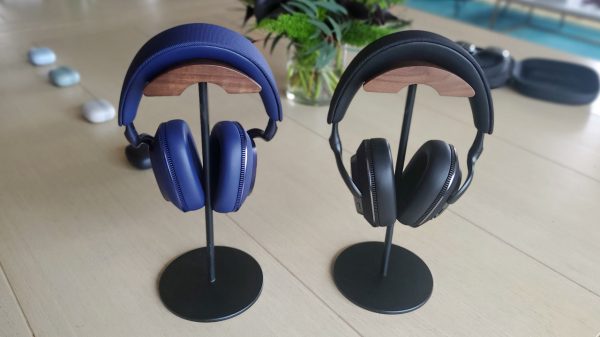
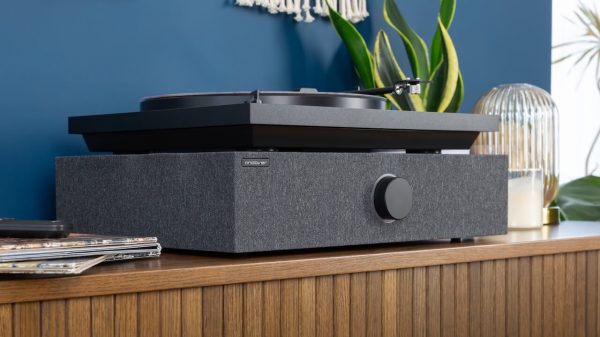

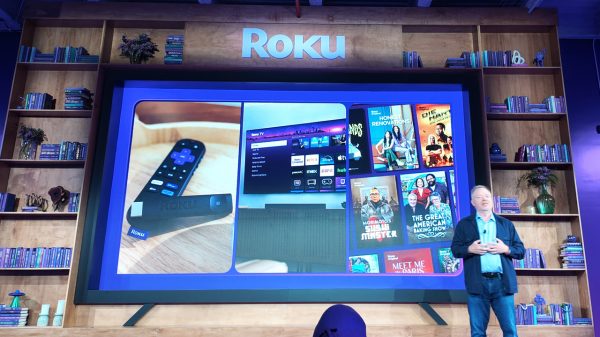



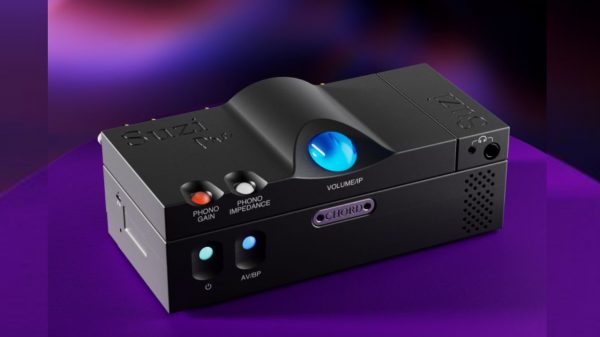

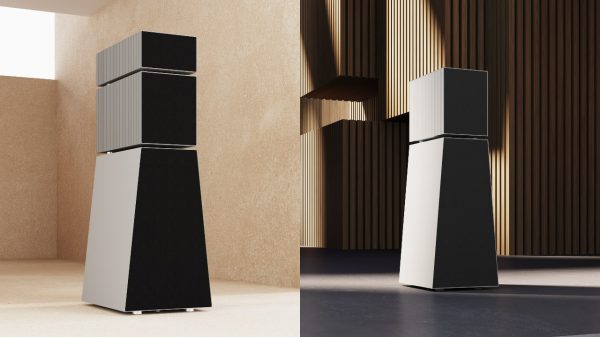




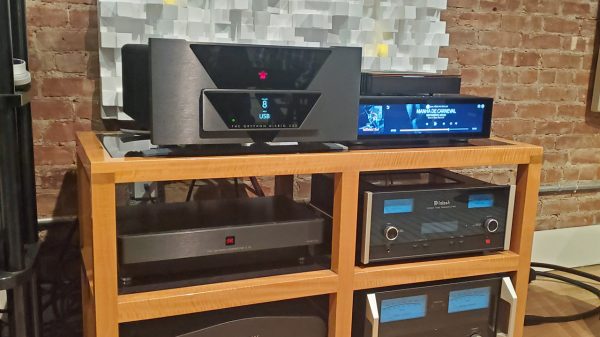



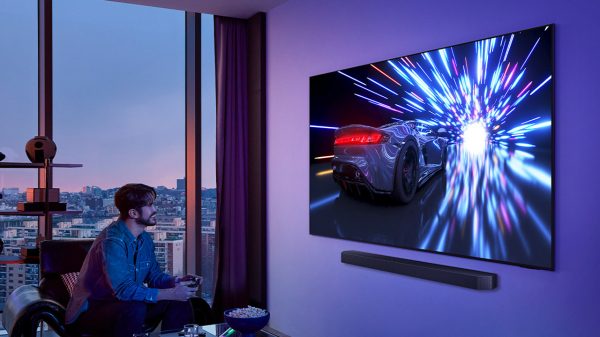



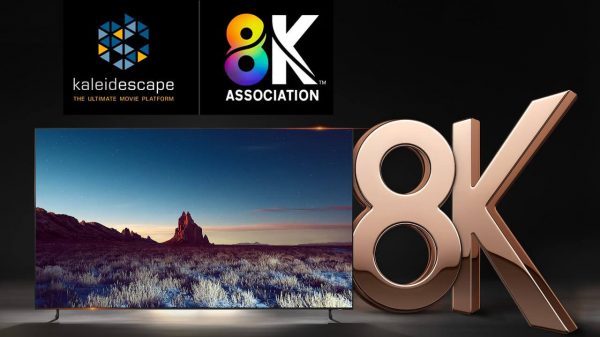












Vince Sorgi
April 3, 2025 at 1:39 pm
This is not a bad idea. We’ve always been told that the real benefit of UHD is not the resolution, but the HDR. For folks like me sitting 9 feet from a 77” screen, I wonder if you could even tell the difference between 2K and 4K if both have HDR.
Ian White
April 3, 2025 at 1:46 pm
Vince,
As Chris pointed out, HDR is the real selling point of UHD. The test will be how this compares to the Strato V on the same TV. I’m willing to bet that Chris will get the opportunity to compare very soon.
I do agree that most consumers don’t look for the same things as “reviewers” and we’re likely to nitpick every last detail that might be different. For some of us with huge 4K movie libraries (that would be me)…the Strato M is the better option but I’m also unlikely to have more than one player. Adding a server would be my path because I have over 3,500 films in my library.
IW
Lord Anton of Encino
April 3, 2025 at 1:50 pm
Your argument about the commercial viability of this movie player is the only logical explanation for this. It would seem logical to me that most of their customer base is committed to the best possible playback quality and that this is not really for them. If you’ve invested over $4K in a high end movie player and spent thousands on movies…2K would be a step backwards.
Most consumers are perfectly fine with a Roku Ultra HD and their current TV and nobody is spending $2K (ironic) on something that can’t do 4K.
The logical play is the model you just reviewed, one of their servers, and the best TV or projector you can afford.